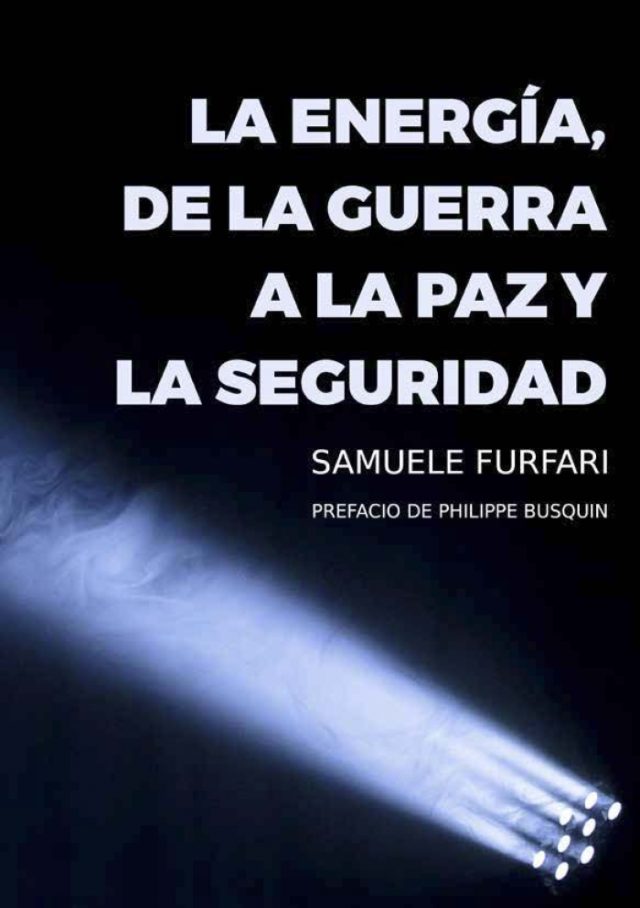
In 2017, Prof. Samuele Furfari published “La energia, de la guerra a la paz y la seguridad” (Eixo Atlantico do Noroeste Peninsular), where he linked the issues of war, peace and security to that of energy.
This is very much what the Heads of State and Government of the North Atlantic Alliance have discussed, seven years later, in Washington, D.C., on the celebration of the 75th anniversary of this international organisation, where Sweden has been formally accepted as a new member.
Under paragraph 34 of the summit declaration, NATO nations have committed to enhance their energy security efforts. According to the official text, energy is a critical capability enabler to NATO’s core tasks and military operations and, therefore, it is necessary to ensure secure, resilient, and sustainable energy supplies, including fuel, to North Atlantic military forces.
In the second chapter of his book, Prof. Furfari recalled how Winston Churchill was also charged by the 1912 British government in order to ensure energy supplies as a necessary means for modern war. France did not understand the importance of the energy factor until 1920 and hence found itself asphyxiated on the verge of the Great War.
The Treaty of Versailles was very harsh towards Germany, including on energy. Prof. Furfari explains that the losing nation would have to provide 60 million tons of coal to France, Belgium, Italy and Luxembourg, therefore reducing its own annual stock from 139 million to 79 million. In the case of France, what Germany provided its neighbouring country with amounted to the whole of their own production in the Nord-Pas de Calais mines, which were destroyed during the war.
Such energy restrictions contributed to the impoverishment of Germany that ultimately led to World War II. How are energy restrictions playing in the Russia-Ukraine war conflict? The British magazine “Spectator” has recently reported that the European Union is still importing 15 per cent of its natural gas from Russia.
Said imports pass through Ukraine, for which Russia is paying its current military enemy a significant amount in terms of the latter’s GNP. On the other hand, the United States have forbidden Ukraine to launch missiles against Russian refinery centres in order not to provoke a global fuel crisis.
It looks as if NATO allies have well learnt the lessons touched upon by Prof. Furfari and do not wish to use energy as a destabilising weapon, in fear that the consequences might be worse than the problem, as it was the case with 1918 Germany.
After all, NATO is a defence organisation. Perhaps the most relevant item in this July 2024 NATO summit has been the so-called pledge of long-term security assistance for Ukraine. Allies commit to a proportionately shared funding of €40 billion in 2025, to cover costs related to the provision of military equipment, assistance, and training.
In other words, the focus is on funding Ukraine rather than defunding Russia via energy geopolitics. In 1941, and once again because of fuels according to Prof. Furfari, Japan attacked Pearl Harbour. The nation of the Rising Sun needed to expand into continental Asia, where President Roosevelt was blocking some of its energy provisions through embargo. History tells again that too much pressure on energy can backfire; and the NATO seems to realise the very risk now.
Prof. Furfari mentions many other examples of the energy-war link: the Ribbentrop-Molotov agreement of 1939 to assure Germany enough provisions of fuel, the battle of Stalingrad as a desperate Nazi attempt to recover fossil fuels (oil and carbon), and even the production of synthetic fuel on behalf of the Third Reich when no other sources were available.
No wonder the Ukraine war is conceived as a rather long clash – albeit with a certain energy standstill, where NATO does not want to push too much. A single paragraph in a key summit.



 Subscribe
Subscribe